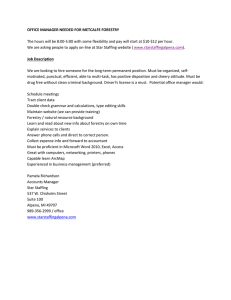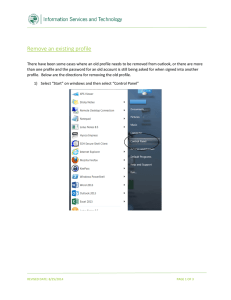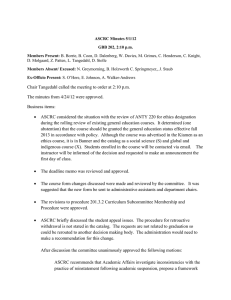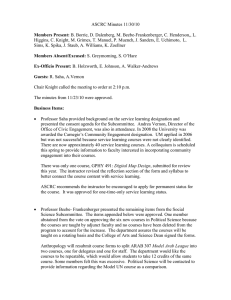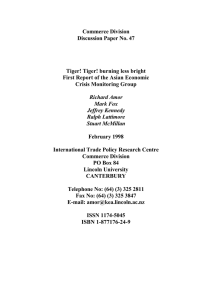Staub, L. Tangedahl The minutes from 3/13/12 were approved
advertisement
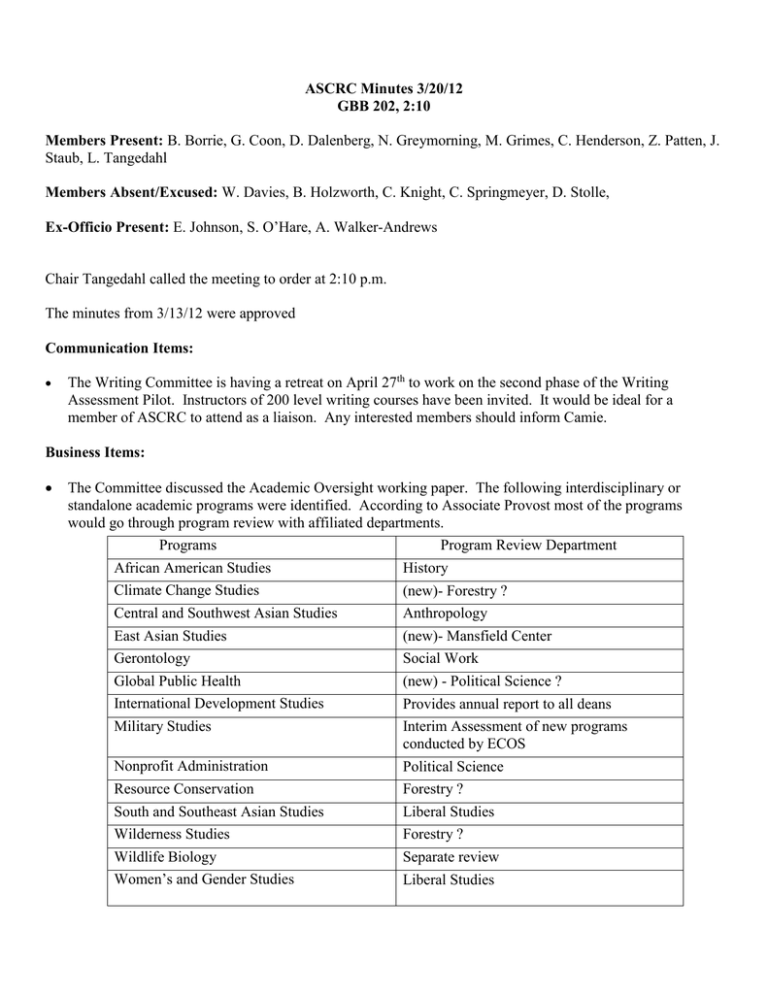
ASCRC Minutes 3/20/12 GBB 202, 2:10 Members Present: B. Borrie, G. Coon, D. Dalenberg, N. Greymorning, M. Grimes, C. Henderson, Z. Patten, J. Staub, L. Tangedahl Members Absent/Excused: W. Davies, B. Holzworth, C. Knight, C. Springmeyer, D. Stolle, Ex-Officio Present: E. Johnson, S. O’Hare, A. Walker-Andrews Chair Tangedahl called the meeting to order at 2:10 p.m. The minutes from 3/13/12 were approved Communication Items: The Writing Committee is having a retreat on April 27th to work on the second phase of the Writing Assessment Pilot. Instructors of 200 level writing courses have been invited. It would be ideal for a member of ASCRC to attend as a liaison. Any interested members should inform Camie. Business Items: The Committee discussed the Academic Oversight working paper. The following interdisciplinary or standalone academic programs were identified. According to Associate Provost most of the programs would go through program review with affiliated departments. Programs Program Review Department African American Studies History Climate Change Studies (new)- Forestry ? Central and Southwest Asian Studies East Asian Studies Gerontology Anthropology (new)- Mansfield Center Social Work Global Public Health International Development Studies Nonprofit Administration Resource Conservation (new) - Political Science ? Provides annual report to all deans Interim Assessment of new programs conducted by ECOS Political Science Forestry ? South and Southeast Asian Studies Wilderness Studies Liberal Studies Forestry ? Wildlife Biology Women’s and Gender Studies Separate review Liberal Studies Military Studies The preferred proposal language was revised slightly: All educational programs (i.e. degrees, majors, minors, options, and certificates) must be subject, on a seven-year cycle, to University program review. The program faculty should have a connection to an academic unit for which unit standards for faculty evaluation are in place. At a minimum the policy should assure the programs undergo normal program review. The program should also fall under unit standards to assure academic oversight of courses. Military Studies would be an exception to this language considering the ROTC courses are taught by military personnel paid for by the federal government. There is concern that many of the courses are taught by faculty or contract professionals that do not have an academic home. The policy should be sensitive to the tenure vs nontenured faculty issue. Members will be sent the revised language to consider for further consideration next week. The proposed Global Leadership Inititive Course, HHP 191, Exercise is Medicine was recommended for a one-time-only service learning designation by the Service Learning Committee after review of follow-up information. The course was already approved for Social Science. The committee continuted discussion regarding the proposed motion to grant exceptions to the language requirement only to extended majors (over 48 credits). It would be preferable to offer incentives for students to take a langugage rather than forcing students in programs that are not credit heavy to take a language. One option may be to allow language courses to count for two general education groups. This approach would not increase credits and would broaden the departments students encourage all students. Professor Danlenberg will talk with the Chair of Foreign Language about the possibility before the committee takes action on the motion. The committee discussed the Office of the Commissioner’s flow chart with regard to Common Course numbering review. There is concern that unique courses require additional review by other campuses. It is likely that the intent was to reingage the FLOC. The faculty member that first proposes a unique course defines the learning outcomes that are entered into the database. The workgroup is working on a revised flow chart and procedures to eliminiate redundancy. The meeting was adjourned at 4:00 p.m.
